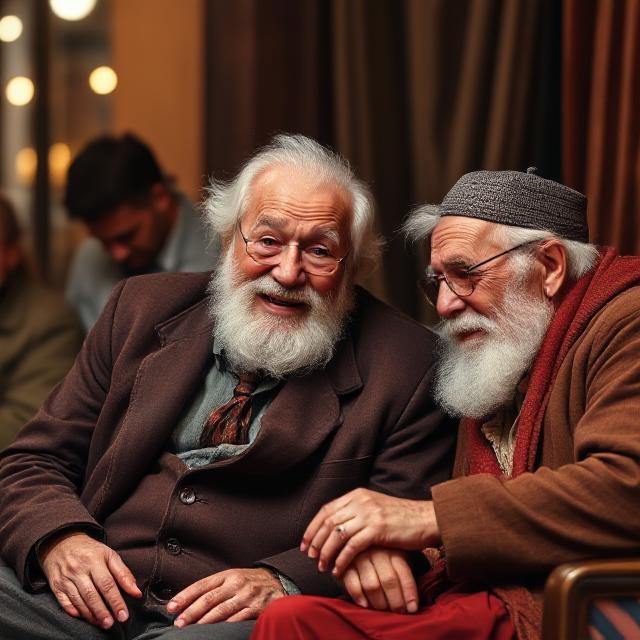Introduction to Grandpa Jokes
In a world where humor evolves constantly, one timeless category of jokes continues to bring smiles, chuckles, and even eye-rolls across generations: grandpa jokes. These jokes, often characterized by their cheesy puns, groan-worthy punchlines, and a distinctly nostalgic flavor, have cemented their place in the cultural fabric of family life. But what makes grandpa jokes so endearing, and why do they persist despite the rise of more contemporary humor? Let’s explore the delightful world of grandpa jokes, their origins, and their enduring appeal.
The Hallmarks of Grandpa Jokes
Grandpa jokes are typically simple, straightforward, and rely heavily on wordplay. They often feature puns—play on words that sound alike but have different meanings—and are delivered with a deadpan or overly serious tone that amplifies their comedic effect. For example:
- Why did the scarecrow win an award? Because he was outstanding in his field!
- What do you call cheese that isn’t yours? Nacho cheese!
These jokes are usually clean, family-friendly, and designed to evoke a gentle groan or a chuckle rather than a burst of uncontrollable laughter. Their simplicity often makes them accessible to all ages, and their predictability can sometimes make them more amusing than more complex humor.
The Origins of Grandpa Jokes
The term “grandpa joke” is somewhat informal, but it encapsulates a style of humor that has been around for decades, if not centuries. Historically, older generations—particularly grandfathers—have been associated with telling jokes that are as much about sharing a laugh as they are about passing down a sense of tradition and camaraderie.
The archetype of the “grandpa joke” likely stems from the social role of grandparents as storytellers and keepers of family history. Their humor often reflects the cultural norms and language of their youth, which can seem quaint or corny to younger listeners. Over time, these jokes have become emblematic of a certain nostalgic innocence, a reminder of simpler times.
Why Do Grandpa Jokes Endure?
Despite their reputation for being cheesy, grandpa jokes have a lasting appeal for several reasons:
- Universality and Simplicity: Their straightforward nature makes them easy to understand and enjoy across ages and cultures. They don’t require complex setups or punchlines—just a quick pun or wordplay.
- Nostalgia and Tradition: For many, grandpa jokes evoke memories of family gatherings, holidays, and childhood. They serve as a bridge between generations, fostering a sense of continuity and shared humor.
- Comfort and Familiarity: The predictability of these jokes provides comfort; they’re safe, non-offensive, and often delivered with a twinkle in the eye that signals “I know this is silly, but I love it.”
- Cultural Identity: The humor of grandfathers often reflects the language, values, and humor of their era, giving younger generations insight into their ancestors’ worldviews.
The Role of Grandpa Jokes in Modern Culture
In today’s fast-paced, meme-driven humor landscape, grandpa jokes may seem out of step with the latest trends. However, they have experienced a sort of renaissance in popular culture, often celebrated for their timeless qualities. Many comedians and social media users share “dad jokes” and “grandpa jokes” as a form of light-hearted, wholesome humor.
Moreover, the rise of “pun competitions” and “knock-knock jokes” on social media platforms highlights the enduring popularity of simple, pun-based humor. Some websites and comedy clubs even host “grandpa joke” contests, emphasizing the universal appeal of cheesy humor.
The Psychological and Social Benefits
Why do people, especially children and grandchildren, enjoy these jokes so much? The answer lies in their ability to create bonds. Sharing a silly joke—even a groaner—can foster laughter, break the ice, and strengthen relationships. For seniors, telling grandpa jokes can be a way to connect with younger family members and share their wit and wisdom.
From a psychological perspective, humor that is light, non-threatening, and inclusive can reduce stress and promote positive feelings. Grandpa jokes, with their harmless puns and playful tone, often serve as social glue, bringing people together in shared amusement.
The Art of the Grandpa Joke
While some may dismiss grandpa jokes as “bad jokes,” there is an art to delivering them effectively. Timing, tone, and a twinkle in the eye can turn a simple pun into a memorable moment. The key is to embrace the silliness and enjoy the moment, rather than worry about whether the joke is “funny enough.”
Many grandfathers take pride in their repertoire of jokes, passing them down through generations like family heirlooms. Whether it’s a classic “Why did the chicken cross the road?” or a clever pun about vegetables, these jokes become part of family lore.
Conclusion
Grandpa jokes may be cheesy, predictable, and sometimes eye-roll inducing, but they are also warm, nostalgic, and undeniably charming. They serve as a reminder of the joy found in simple humor, the importance of family traditions, and the timeless nature of a good pun. In a world that often seeks complexity and sophistication, grandpa jokes remind us that sometimes, the best laughter comes from the simplest, most genuine sources—shared across generations with love and a hearty chuckle.
So, next time you hear a dad joke or a grandpa jokes, embrace it. After all, a little silliness is good for the soul—and who knows, you might just find yourself telling one someday, passing on the joy of a good old-fashioned groaner.




